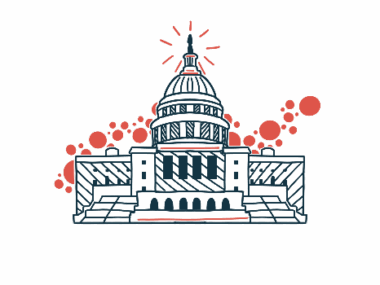ALS Association granted $58M in largest single donation ever
Funds will support clinical trials, treatment centers, financial aid to patients
Written by |

An unprecedented $58 million donation to the ALS Association is a “beacon of hope” for the amyotrophic lateral sclerosis (ALS) community and will finance treatment centers, aid to financially strapped patients, and clinical trials of promising treatments, according to the U.S.-based nonprofit.
The donation from the estate of late philanthropist Hugh Hoffman is the single largest philanthropic gift in the history of the 39-year-old organization, which funds global ALS research and supports patients and their families. It’s a little more than half the amount raised by the summer 2014 Ice Bucket Challenge, which brought in $115 million from 2.5 million donors.
“We are deeply grateful to Hugh Hoffman and his family,” Calaneet Balas, ALS Association president and CEO, said in a press release.
The gift “will provide tangible impacts that advance our goal of making ALS livable until it is cured,” Balas said.
Donor Hugh Hoffman wanted to provide ‘boost of hope’ for families
Hoffman, who died last March at 91, was a Cincinnati native whose father, Herbert, died from ALS complications when Hoffman was 11. He had hoped his donation to the ALS Association would ultimately prevent other families from having to endure such a loss.
“Uncle Hugh hoped that his gift would provide an immediate boost of hope for people living with ALS and their families,” said Bert Bullock, one of Hugh Hoffman’s nephews. “This gift is a powerful testament to who he was and represents our family’s way of championing his legacy.”
Balas and her team met several times with Hoffman to help understand his desire to contribute to ALS research and to support those living with the progressive neurodegenerative disorder, the association said.
The gift will fund three programs to expand ALS research and care:
- The Hoffman ALS Clinical Trial Awards program will support early-stage clinical studies to develop experimental therapies. The association expects to fund two to three additional ALS clinical trials annually, or 20-30 new clinical investigations over 10 years.
- The Hoffman ALS Clinic Development Awards program will help develop eight new ALS Association Certified Treatment Centers of Excellence and Recognized Treatment Centers over 10 years, and bring existing clinics to Certified or Recognized Treatment Center status. These centers offer specialized care with teams typically including a neurologist, physical therapist, occupational therapist, respiratory therapist, nurse, dietitian, speech language pathologist, social worker, mental health professional and ALS Association liaison.
- The Hoffman ALS Patient Care Expansion Awards program will increase patient access to multidisciplinary care by funding additional clinic days, expanding access to teleheath, and reducing financial barriers to care. The association expects to provide 60 grants to ALS clinics and 3,000 grants to ALS patients through the program.
Hoffman, a Yale University graduate who became a stockbroker and investment adviser, also left money to the Cincinnati Zoo & Botanical Garden and the University of Cincinnati, according to the ALS association.
“Our Uncle Hugh was an incredibly generous, kind man of great integrity who wanted to give back,” said Steve Bullock, another nephew. “He lived a modest life, which enabled him to make truly transformative donations after his death. His generosity speaks volumes about the sort of person he was.”
The Ice Bucket Challenge, primarily aimed at raising ALS awareness, became a social media phenomenon when launched in the summer of 2014. The funds raised from the effort helped finance new treatments, expand care, and start research projects, the association said.
“We saw how the ALS Association was able to leverage the Ice Bucket Challenge donations and provide tangible impacts for people living with ALS,” said Steve Bullock. “We believe Hugh’s gift provides a giant step forward toward the ALS Association’s goal of making ALS livable for everyone, everywhere, until there is a cure.”






